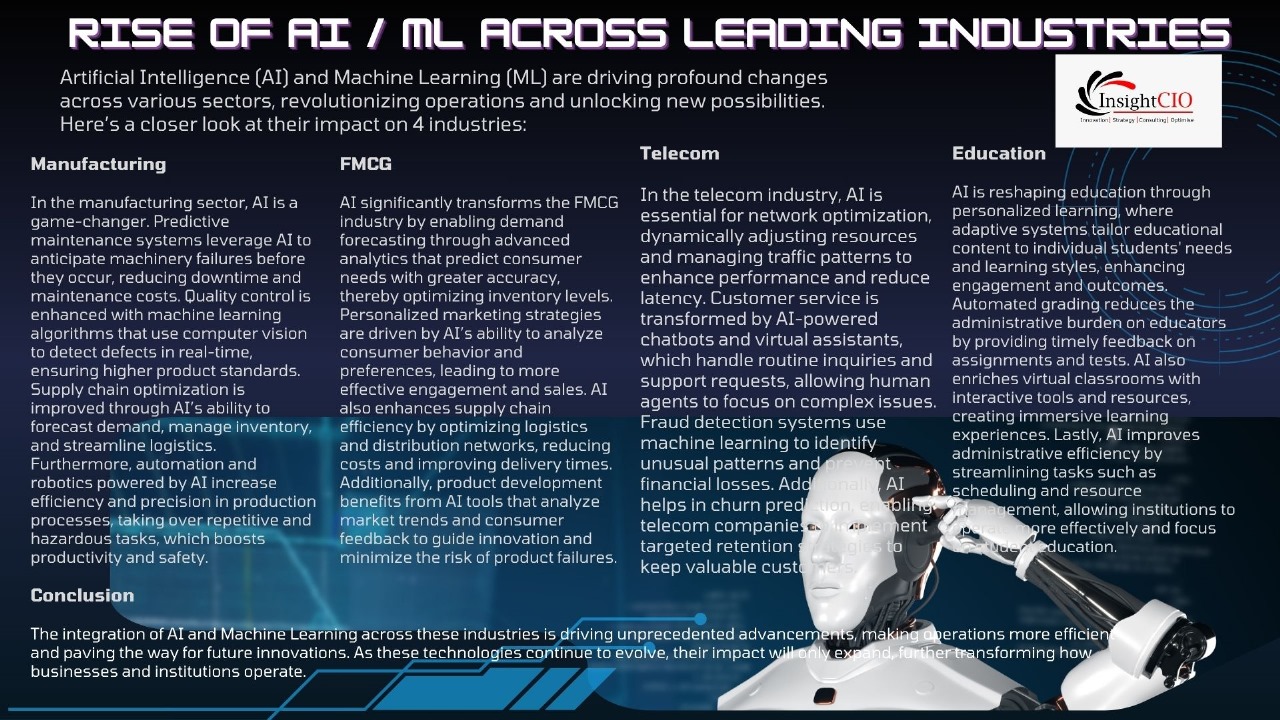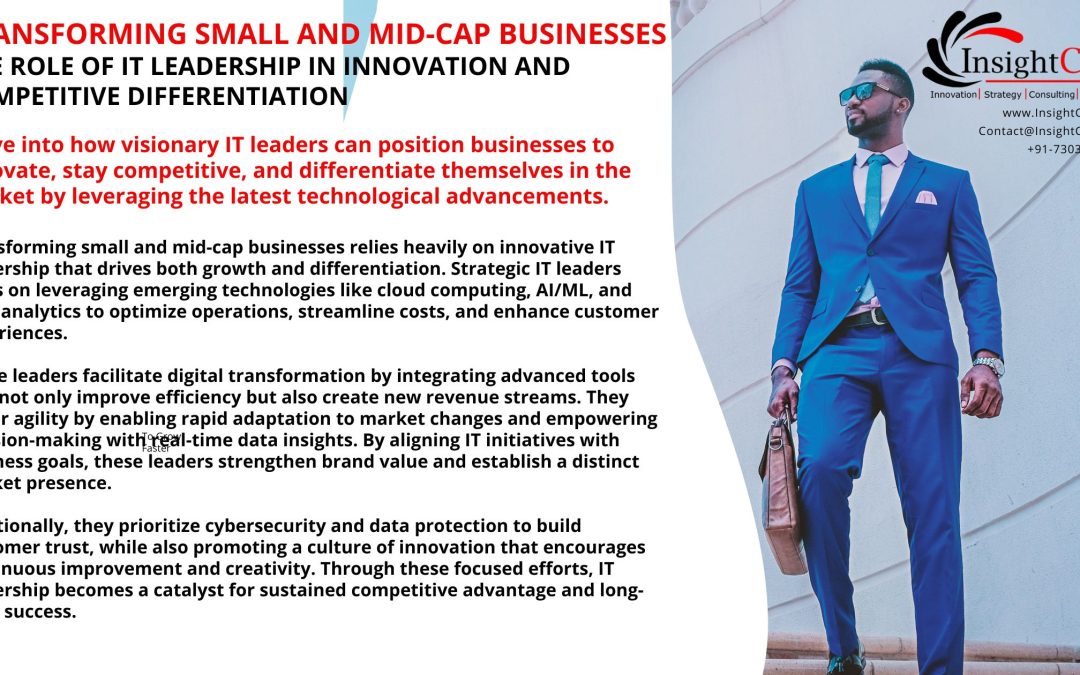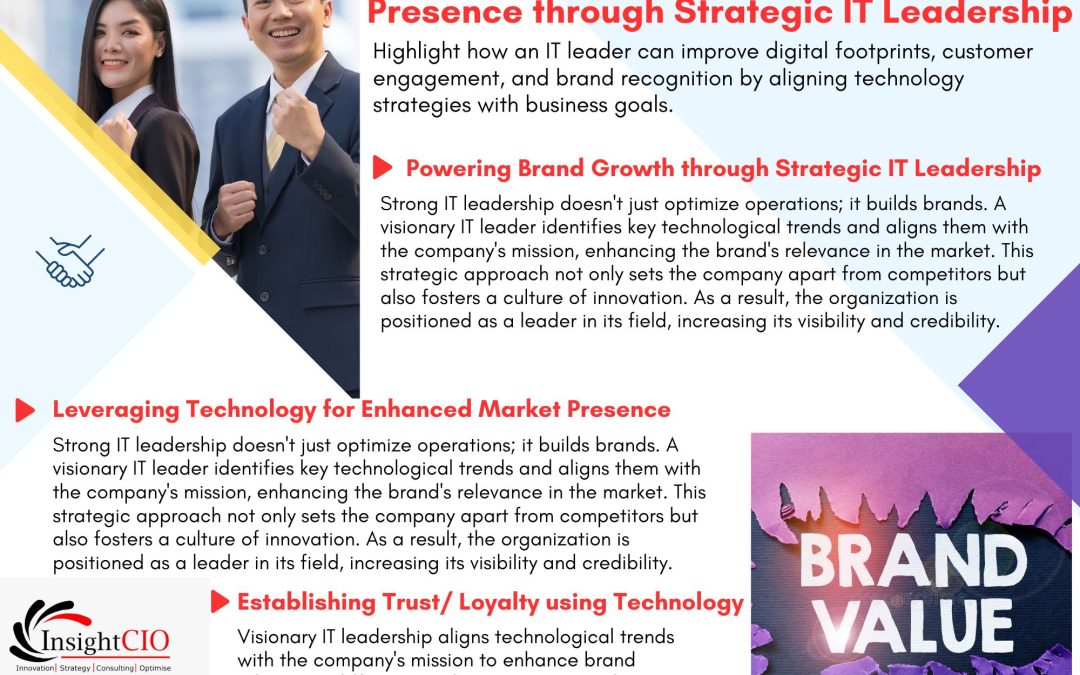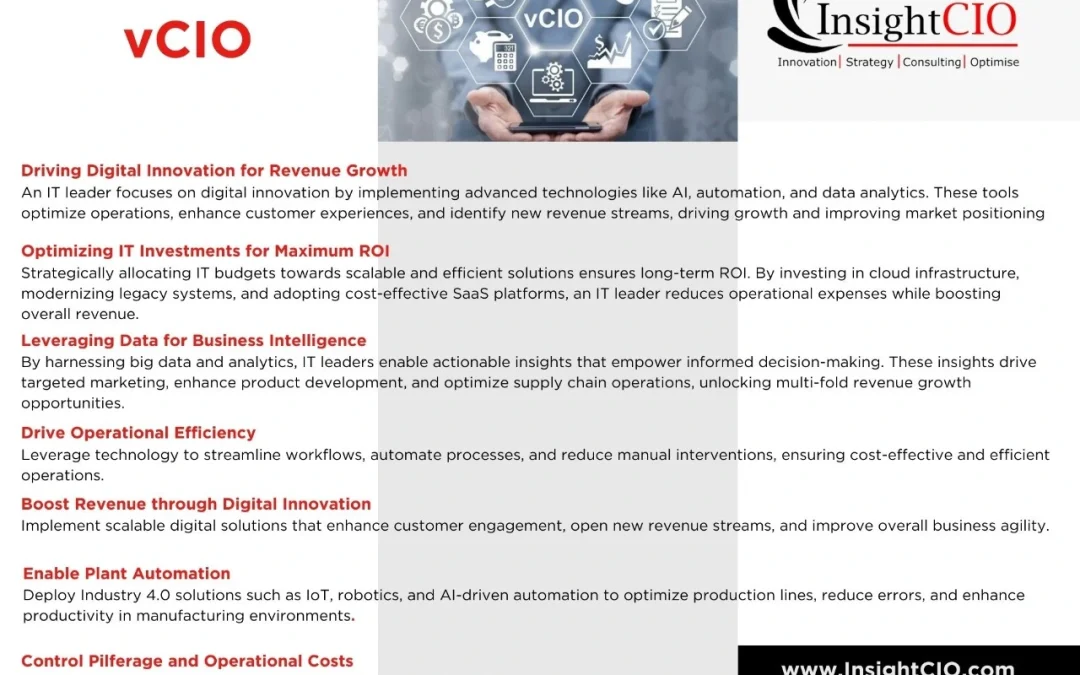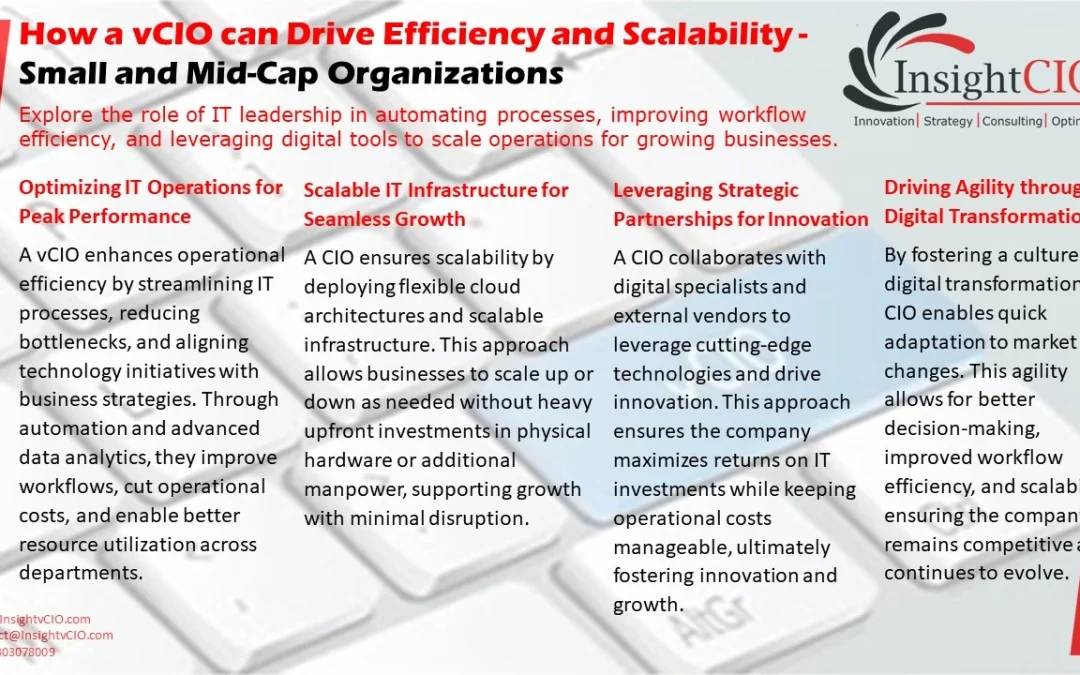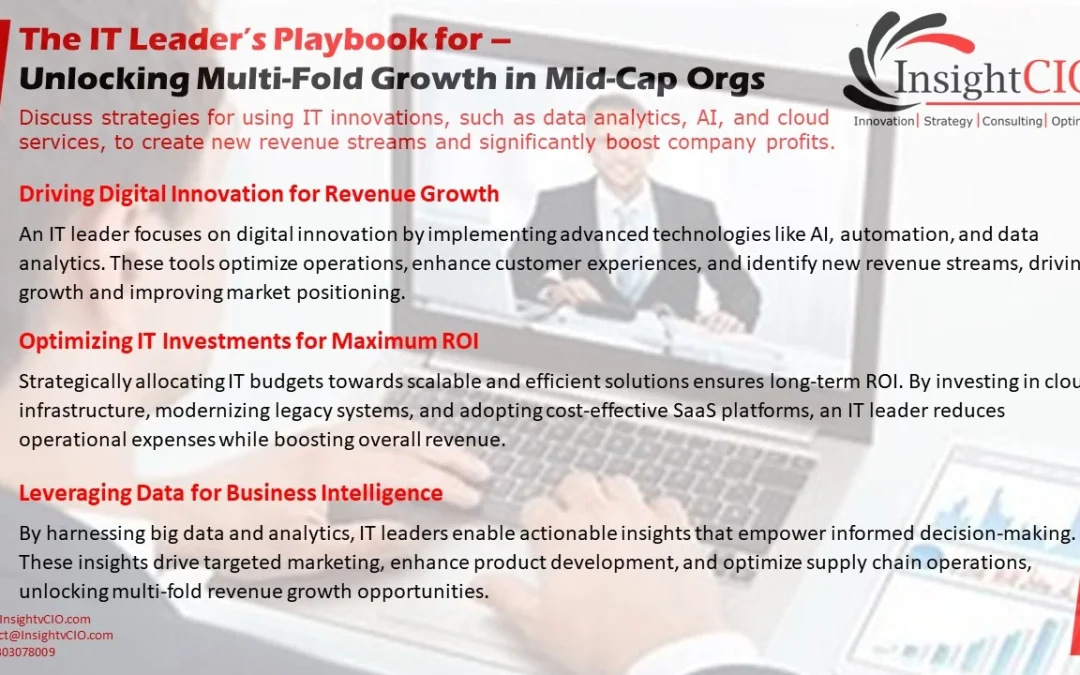Artificial Intelligence (AI) and Machine Learning (ML) are driving profound changes across various sectors, revolutionizing operations and unlocking new possibilities. Here’s a closer look at their impact on 4 industries:
Manufacturing
In the manufacturing sector, AI is a game-changer. Predictive maintenance systems leverage AI to anticipate machinery failures before they occur, reducing downtime and maintenance costs. Quality control is enhanced with machine learning algorithms that use computer vision to detect defects in real-time, ensuring higher product standards. Supply chain optimization is improved through AI’s ability to forecast demand, manage inventory, and streamline logistics. Furthermore, automation and robotics powered by AI increase efficiency and precision in production processes, taking over repetitive and hazardous tasks, which boosts productivity and safety.
FMCG
AI significantly transforms the FMCG industry by enabling demand forecasting through advanced analytics that predict consumer needs with greater accuracy, thereby optimizing inventory levels. Personalized marketing strategies are driven by AI’s ability to analyze consumer behavior and preferences, leading to more effective engagement and sales. AI also enhances supply chain efficiency by optimizing logistics and distribution networks, reducing costs and improving delivery times. Additionally, product development benefits from AI tools that analyze market trends and consumer feedback to guide innovation and minimize the risk of product failures.
Telecom
In the telecom industry, AI is essential for network optimization, dynamically adjusting resources and managing traffic patterns to enhance performance and reduce latency. Customer service is transformed by AI-powered chatbots and virtual assistants, which handle routine inquiries and support requests, allowing human agents to focus on complex issues. Fraud detection systems use machine learning to identify unusual patterns and prevent- financial losses. Additionally, AI helps in churn predation, enabling telecom companiesiement targeted retention stegies to keep valuable customers
Education
AI is reshaping education through personalized learning, where adaptive systems tailor educational content to individual students’ needs and learning styles, enhancing
engagement and outcomes. Automated grading reduces the administrative burden on educators by providing timely feedback on assignments and tests. AI also enriches virtual classrooms with interactive tools and resources, creating immersive learning experiences. Lastly, AI improves administrative efficiency by streamlining tasks such as scheduling and resource Management, allowing institutions to perate more effectively and focus education.
Conclusion
The integration of AI and Machine Learning across these industries is driving unprecedented advancements, making operations more efficien and paving the way for future innovations. As these technologies continue to evolve, their impact will only expand, further transforming how businesses and institutions operate.

